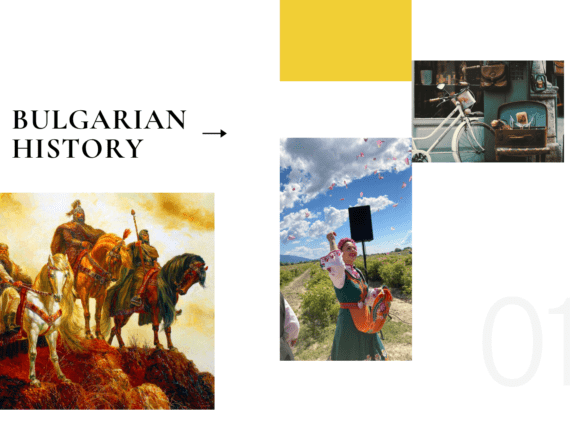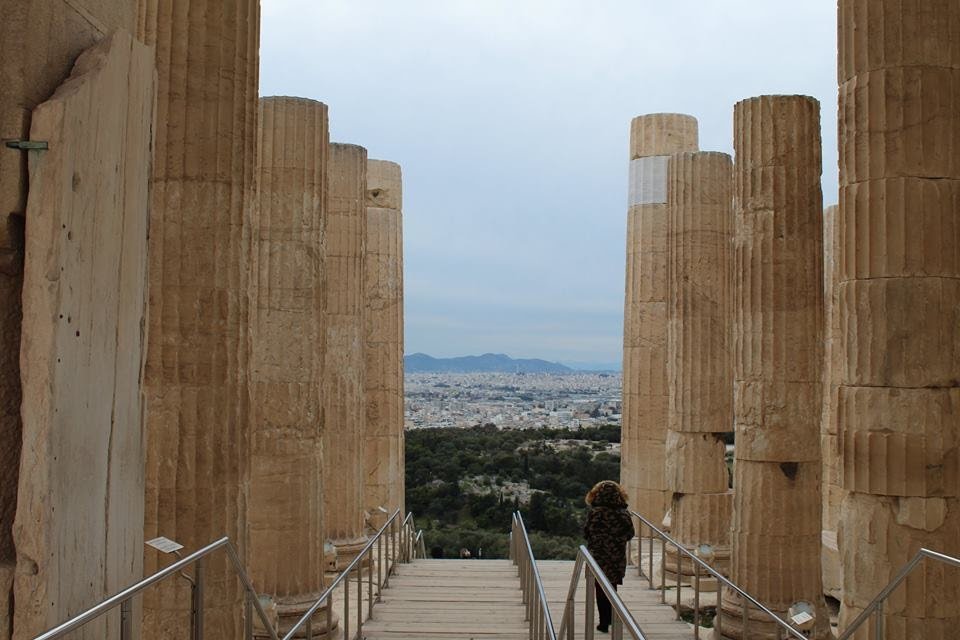We are not makers of history. We are made by history. A quote by Martin Luther King jr. with which I completely agree. That’s why I would like to tell you more about my origins.
- The beginning of the First Bulgarian Kingdom
As a start I want to let you know that our history is really long. Although officially our country exists since year 681, the Proto-Bulgarians, also known as Bulgars, came to these lands around year 632. Khan Kubrat unites them. Other tribes that live in these lands are the Slavs. They also join the union of the Bulgars and it results in a future Slavic-Bulgarian country which gets recognized in year 681 together with khan Asparuh as its leader. That’s how the Bulgarian country comes to be.
- Christianization and the creation of the Cyrillic script
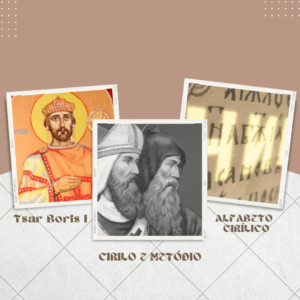
Due to the different religions the rulers decide to unite the Slavs and the Proto-Bulgarians by introducing the Christianity as an official religion. The religion is accepted in year 865 and in 870 the Church becomes independent. Another step that tsar Boris I takes back then to unite the Slavs and the Proto-Bulgarians is the creation of a common script which means the creation of the Cyrillic alphabet in 855.
We have our first Golden age with tsar Simeon I the Great. Bulgaria reaches 3 seas at that time. However after every growth comes a downfall. A little bit after the reign of tsar Simeon Bulgaria falls under Byzantine rule. It lasts around 100 years until the brothers Petar and Assen liberate the people.
- Second Bulgarian Kingdom
The next historical figure that needs to be mentioned is tsar Kaloyan with his good politic and connections with the Church of Rome. Sadly, he ends up a victim of a conspiracy. Some years later his nephew Ivan Asen II becomes a king (tsar) and reaches the glory of the Second Bulgarian Empire. He extends the borders, but he also contributes a lot for the culture and education development as well as the improvement of the neighboring countries.
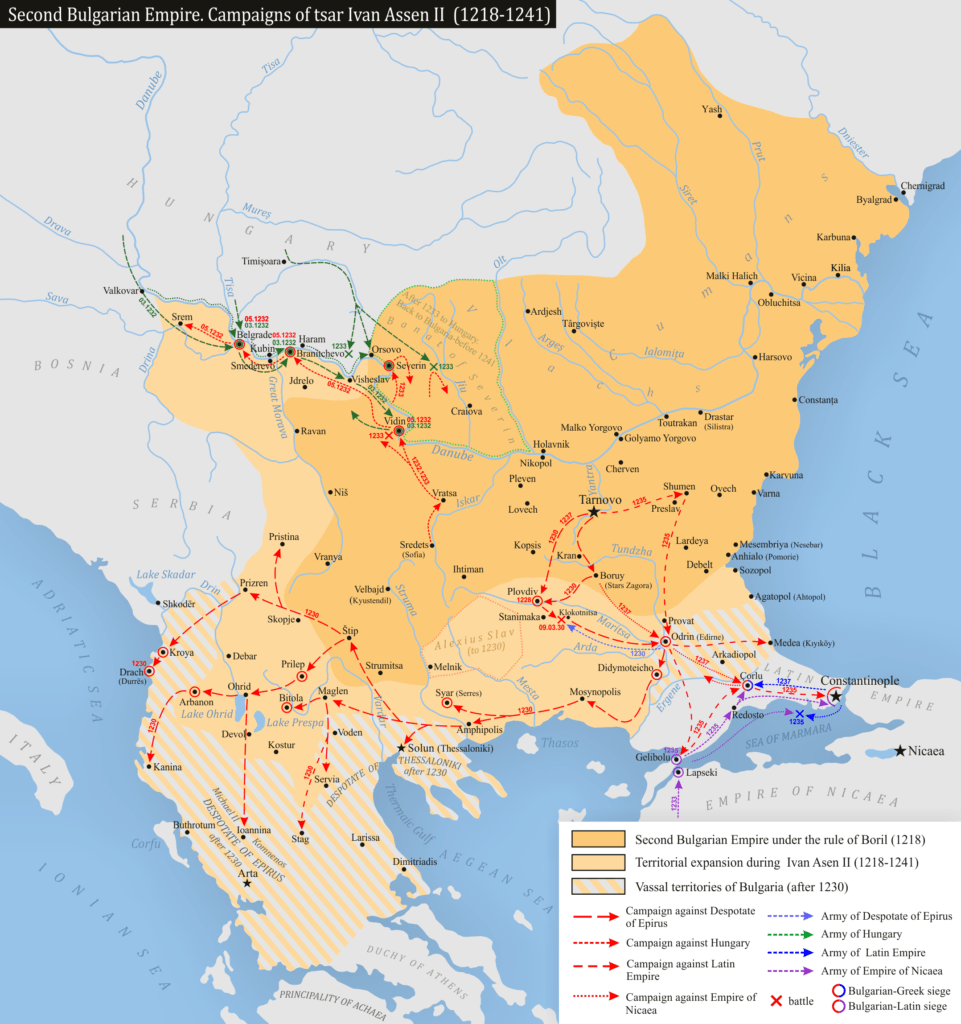
And after this growth comes another fall. The next kings are not blessed with the talent to negotiate which Ivan Asen II had. While fighting with the other Balkan countries, not even a single king notices the threat that approaches the peninsula. On the contrary, the rulers help the Ottoman Turks to get on the peninsula and participate in the fights between the kingdoms. But soon after that the Ottoman Turks start to conquer little by little the Bulgarian lands as well as the lands of other countries on the peninsula until in year 1396 is conquered the last territory of the Second Bulgarian Empire.
- Ottoman Dominion and Liberation Day
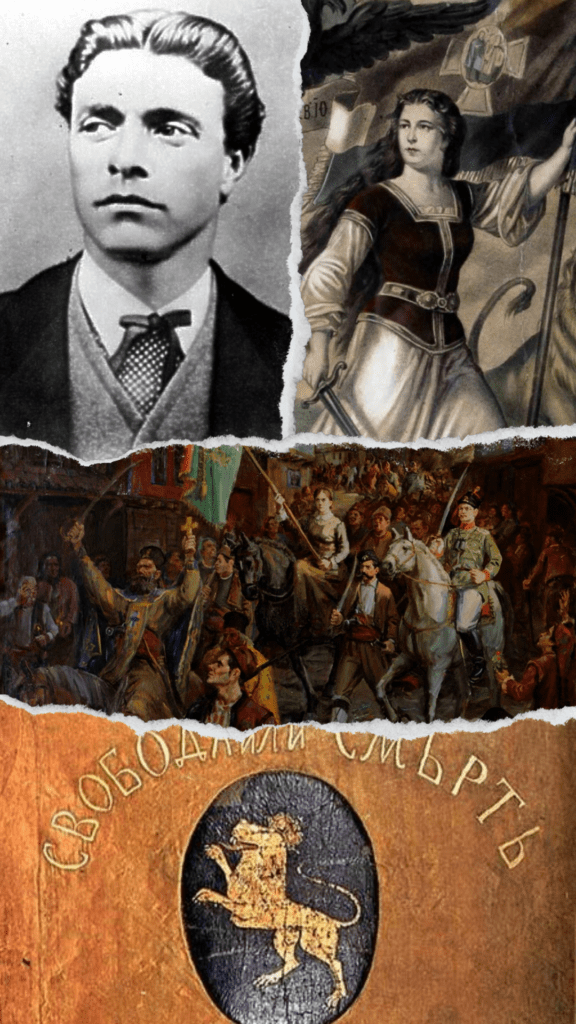
Bulgaria ends up under a dominion that lasts almost 5 centuries. During the centuries there were various unsuccessful attempts for liberation. One very important attempt that united the people came from Vasil Levski (Apostle of Freedom). He founded an organization which helped to set the stage for the April Uprising in 1876. The Russo-Turkish war(1877-1878) that starts after that results in the liberation of Bulgaria. Even though the people are finally free, in the Treaty of Berlin it is decided that the territories will be divided and big parts of territories with Bulgarians, including Macedonia are left in the borders of the Ottoman empire. On September 6th 1885 takes place the Reunification between the officially recognized as a country Bulgaria with the region Eastern Rumelia which was in possession of the Ottoman empire until then. But this action doesn’t match the interests of the other countries and so in November 1885 a war between Bulgaria and Serbia starts. The Bulgarians win the war and with the Treaty of Bucharest from February 19th 1886 the border before the war with Serbia is restored.
- Balkan Wars, World Wars, Cold War
Some years later the dispute about the region of Macedonia brings the Balkan countries to two Balkan Wars followed by the First World War a little bit after that. This means that in the period 1912-1918 Bulgaria is in war. The last war brings catastrophic results for the country. The loss puts an end of the national ideal and the ethnic unification of all Bulgarians.
Like 3 wars weren’t enough, in 23 years follows another World War. It starts well for Bulgaria. In one moment the national ideal is realized, but the allies start to lose and the situation gets worse. Bulgaria cuts the diplomatic relations with the Greater German Reich and supports the Party of the Russian Soviet Federative Socialist Republic. We chose the winners’ side, but ended up in a paradoxal situation. As a winner the country is more at a loss for having to pay war reparation which is higher than the reparation from the First World War.

One door closes, another one opens. World War II ends, the Cold War and the communist regime in Bulgaria starts. She becomes a satellite state of Soviet Russia, which means, it stays in the Soviet sphere of influence due to the Warsaw Pact. The regime grows into a socialist regime which reaches its end in 1989.

